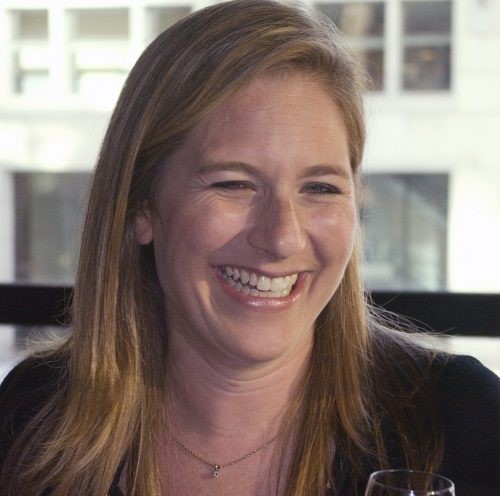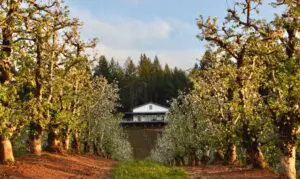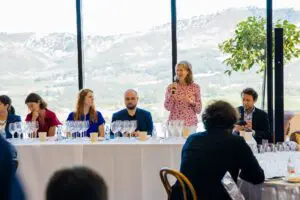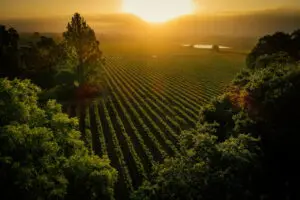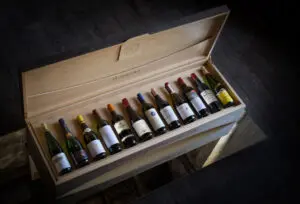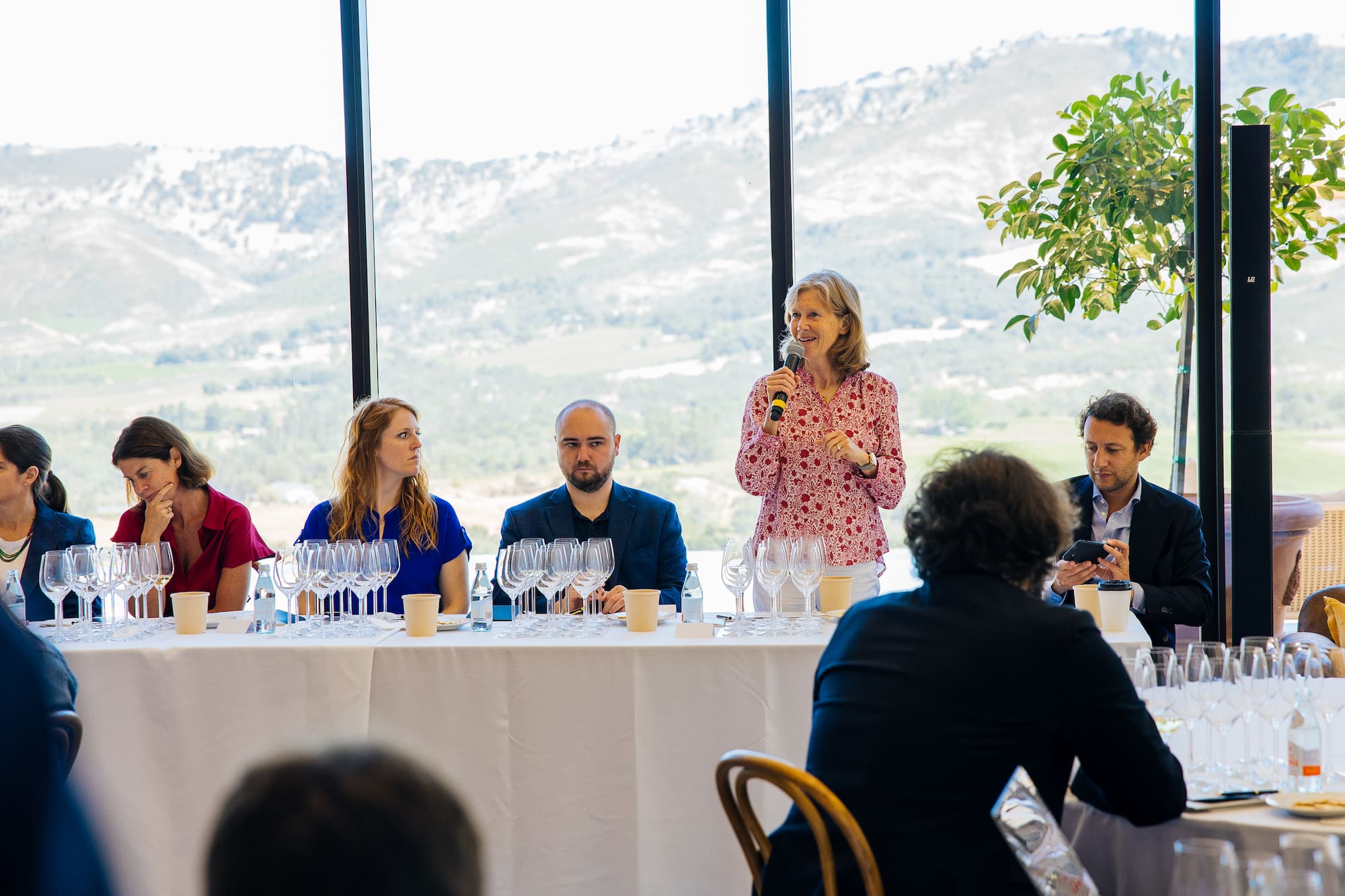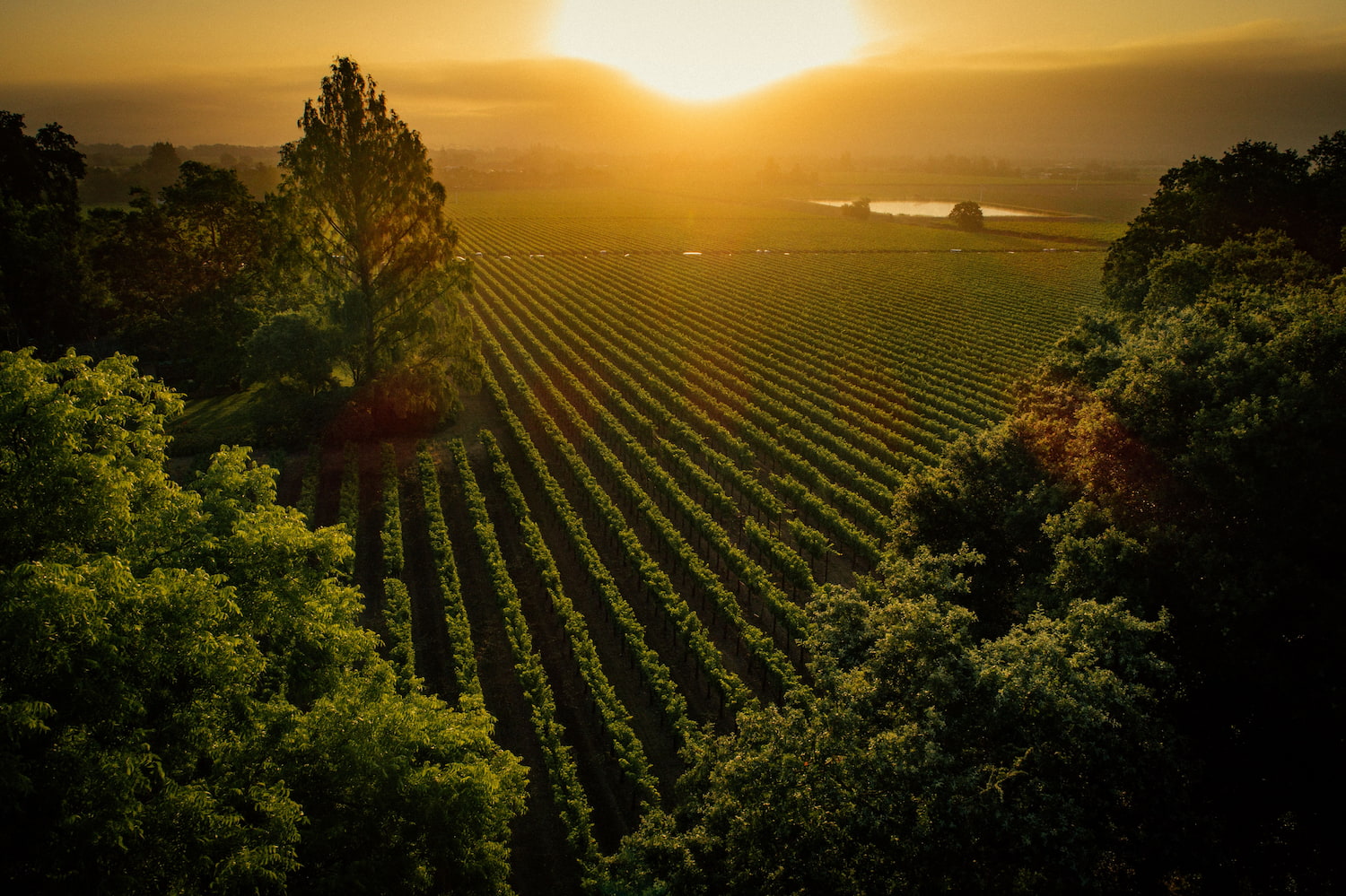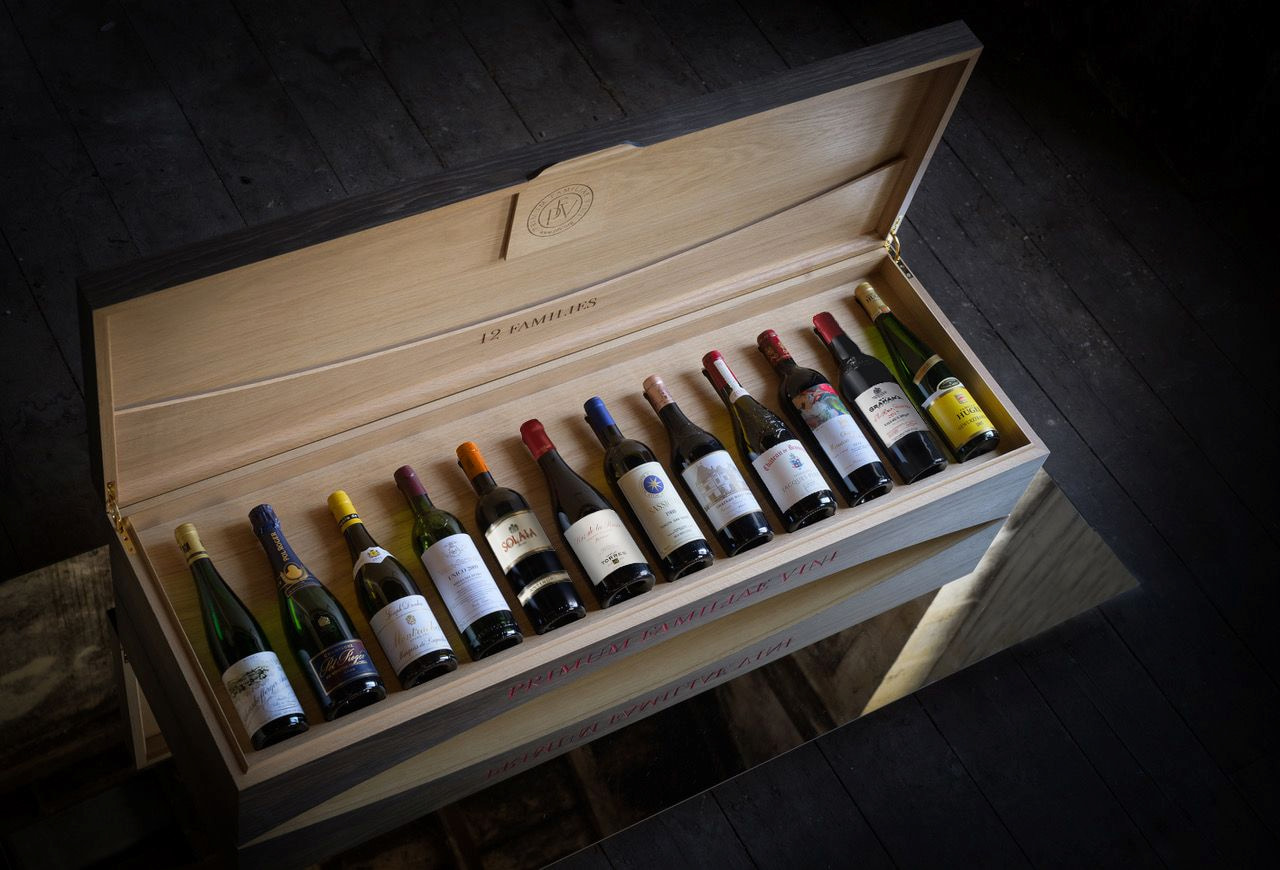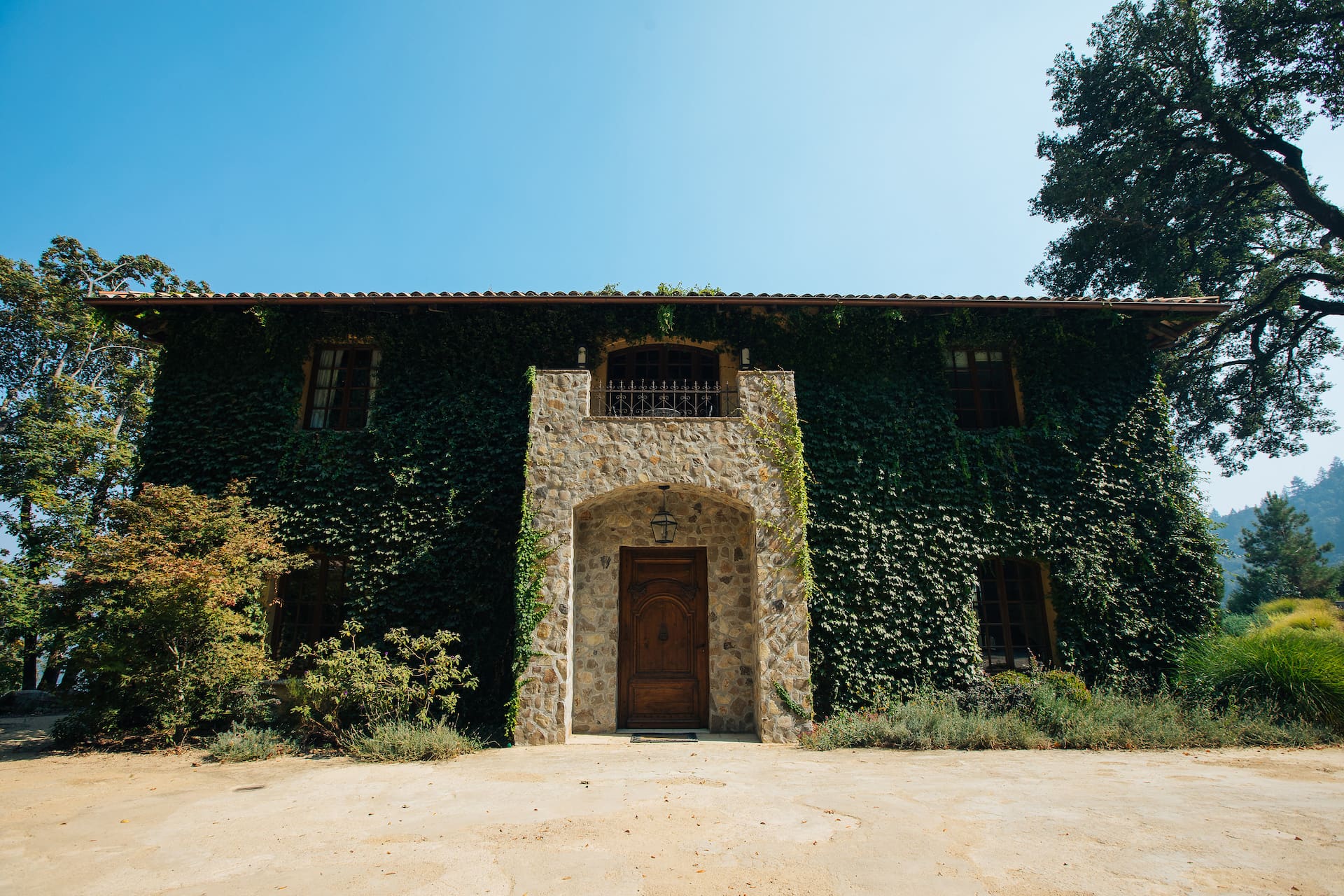Sitting in the heart of Carneros, the breathtaking château of Domaine Carneros sits perched on a hill, surrounded by the estate. Inspired by the 18th century Château de la Marquetterie in Champagne, France, which is owned by Champagne Taittinger, Domaine Carneros was founded by Claude Taittinger in 1987. For more than 30 years, Domaine Carneros has been known for its elegant méthode traditionelle sparkling wines and Pinot Noir. And, throughout that time, Eileen Crane, the founding winemaker, was known as American’s doyenne of Sparkling Wine. But, in 2020, after 33 years, Eileen Crane retired and passed the torch to a new CEO, Remi Cohen.

I first met Remi Cohen a few years ago she was the chief operating officer of Lede Family Wines in Napa Valley. In fewer than 20 years, Remi went from viticulture student to viticulturist and winemaker to general manager of a winery. When we had met, she shared that she had set a goal for herself to be the general manager of a winery by the time she was 40. She accomplished that goal in 2014 when she became the general manager of Lede Family Wines at the age of 37.
Remi had not imagined that her next step was to take the place of Eileen Crane. But, mid-pandemic, she received a call offering her a job at Domaine Carneros. Remi’s career had started in Carneros where she worked for Saintsbury, Bouchaine, Merryvale, and Starmont. Her love for Carneros, and her love of Champagne and sparkling wines, made this the ultimate dream job.
Remi joined Domaine Carneros on August 3, 2020, which was also the first day of the sparkling wine harvest. Two weeks later, on the same night they had finished picking the grapes for sparkling wine, the fires started. They managed to complete the Pinot Noir harvest with little impact. But, in hindsight, it was an exceptionally challenging time to take the reigns of CEO of Domaine Carneros.

Fortunately, there is not a lot of change or improvement needed at Domaine Carneros, explained Remi. “The team is incredible. The facility is amazing and well-maintained. The wines are even better than I had remembered them to be. There was already a sustainability program and a human resources program in place.”
Remi’s background is in the vineyard, and she enjoys being involved in picking decisions and blending trials with the team to produce six sparkling wines and five Pinot Noirs. But less familiar territory for her was having an in-house human resources department. Having worked for multiple family wineries, human resources department are not common. Remi has also found herself spending more time on the hospitality side of the business than the wholesale side, as Domaine Carneros’ partner Kobrand manages all distribution.

Sustainability Is a Priority
Domaine Carneros has been forward thinking and has always looked towards future generations. They were one of the first wineries to have a tasting room and they established one of the first wine clubs in the 1990s. In 1992 they started making Pinot Noir and launched the first Le Reve Blanc de Blancs. From the beginning, sustainability was ingrained into the company culture. Domaine Carneros has farmed sustainably since the late 1980s and in 2013 they became certified sustainable. In 2015 they were Fish Friendly Farming certified. Domaine Carneros is Napa Green Certified with both Land and Winery certifications for their efforts in water and energy conservation and waste diversion. They reclaim two-thirds of their water and through innovative packaging recycling and composting programs, Domaine Carneros can keep 90% of its waste out of landfills. As of 2019, they have offset 100% of the carbon footprint of all packages shipped through their five U.S. fulfillment centers (the equivalent of taking 850 cars off the road for an entire year). Domaine Carneros was also one of the early adopters of solar power. In 2003 they installed the largest solar collection system of any winery in the world. Since it was installed, the system has captured enough electricity to power 230 homes for a year.
“Consumers will care more about how a company treats its employees and what its role is in the community. At Domaine Carneros, we have always been strong in our sustainability initiatives, which was acknowledged in 2019 when we won the California Green Business Medal and in 2020 when we received the Napa Climate Now! Award,” Remi shared. “We are now in the process of ‘amping up’ our commitment to renewable energy by expanding our solar energy and building a microgrid which will allow us to operate off the grid when necessary. This is just one example of our commitment to sustainability.”
Remi continues to expand Domaine Carneros’ sustainability practices which extend beyond the vineyard and winery and focus on the employees and community. Domaine Carneros employees actively make sustainable choices in the workplace, day in and day out. Employees have reduced the use of single-use plastic by replacing with reusable water bottles and compostable plates, cups, and silverware in the break room.

Open Book Management
Domaine Carneros believes in an open book management philosophy and Remi has embraced this style of management. They follow Zingerman’s business model which focuses on various aspects of employee involvement, dedication, and engagement. The result is that everyone who works at Domaine Carneros has insight to the bottom line. The company gathers once a month and department heads give updates on company key performance indicators (KPIs).

Diversity and Inclusiveness
Domaine Carneros is committed to diversity and inclusion. The company reflects the community they live in, and more than half of the management team consists of women. But there are areas to grow, and Remi is focused on continuing to build inclusivity by building out the DEI (Diversity, Equity, and Inclusion) program at Domaine Carneros.
Remi has created a mentorship program within the company. There are 140 employees who can apply for one-on-one mentoring with someone on the management team. Remi has also expanded upon the “lunch and learn” program in which people meet with people in other departments to learn more about their expertise. And continuing education courses are offered to employees on a range of topics including finance, Excel, and winemaking.
The focus is to give staff the opportunity for movement within the company, with a particular focus on the Hispanic community. Already there has been recent advancement of several employees who started in entry-level roles in hospitality and are now in lead or wine educator server roles.
Each year, Domaine Carneros goes through an assessment and audit of their business practices. “Auditing ourselves is most important,” Remi explained. “We must always ask ourselves, ‘where can we be stronger?’”

The Future
Remi is building on the sustainability, mentorship, and human resource programs. She is also concentrating on the hospitality experience to create more elevated and private experiences. There is a focus on bringing more visibility to the Domaine Carneros Pinot Noir program. And Remi has a dream of possibility adding more vineyard land.
Remi Cohen is continuing the legacy of Eileen Crane and we can only hope that she will have the same longevity. Now with her first year behind her, Remi is comfortably established in her position as CEO and looking towards the future
Allison Levine is the owner of Please The Palate, a boutique agency specializing in marketing and event planning for the wine and spirits industry. With over 15 years of experience in communications, marketing, and event planning, Allison is passionate about the world around her and the diverse people in it. Allison is a freelance writer and contributes to numerous publications, as well as her blog at www.pleasethepalate.com. She is the host of the podcast WineSoundtrack USA where she interviews winemakers and winery owners who share their stories, insights, and some humorous anecdotes. She also co-hosts a wine video series on YouTube called Crush On This. Allison holds a master’s degree in International Communications with a focus on cross-cultural training from the American University School of International Service. She also holds a WSET Level 3 Certificate from the Wine & Spirits Education Trust (WSET) and is a member of the Circle of Wine Writers.


